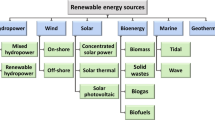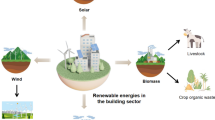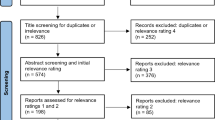Abstract
Let there be several identical deposits of an exhaustible, non-renewable resource, the working of each deposit entailing a set-up cost but no other costs. It is found that the optimal path of extraction dictates that the deposits must be removed in strict sequence with discontinuities of marginal benefit at transition points. Moreover, the average rate of increase of marginal benefit is less than the rate of interest. These results embellish Hotelling's rule relating to optimal methods of resource extraction.
Similar content being viewed by others
References
Dasgupta, P. and Stiglitz, J. 1979. Market structure and resource depletion: a contribution to the theory of intertemporal monopolistic competition. Mimeographed.
Hadley, G. and Kemp, M. C. 1971.Variational methods in economics, Amsterdam: North-Holland Publishing Company.
Hartwick, J. M. 1978. Exploitation of many deposits of an exhaustible resource.Econometrica 46: 201–217.
Herfindahl, O. C. 1967. Depletion and economic theory. InExtractive Resources and Taxation, ed. Gaffney, M. M., pp. 63–90. Madison, Wisconsin: University of Wisconsin Press.
Hestenes, M. R. 1966.Calculus of variations and optimal control theory. New York: John Wiley and Sons.
Hotelling, H. 1931. The economics of exhaustible resources,Journal of Political Economy 38: 137–175.
Kemp, M. C. 1976.Three topics in the theory of international trade. Amsterdam: North-Holland Publishing Company.
Kemp, M. C. and Long, N. V. 1980a. Eating a cake of unknown size: pure competition versus social planning. InExhaustible Resources, Optimality, and Trade Eds. Kemp, M. C. and Long, N. V., pp. 55–70. Amsterdam: North-Holland Publishing company.
Kemp, M. C. and Long, N. V. 1980b. Herfindahl's problem with fixed costs of extraction. University of New South Wales, mimeographed.
Levhari, D. and Liviatan, N. 1977. Notes on Hotelling's economics of exhaustible resources.Canadian Journal of Economics 10: 177–192.
Long, N. V. and Vousden, N. 1977. Optimal control theorems, inApplications of Control Theory to Economic Analysis. Eds. Pitchford, J. D. and Turnovsky, S. J., pp 11–34. Amsterdam: North-Holland Publishing Company.
Vind, K. 1967. Control systems with jumps in the state variables.Econometrica 35: 273–277.
Author information
Authors and Affiliations
Rights and permissions
About this article
Cite this article
Hartwick, J.M., Kemp, M.C. & Long, N.v. Set-up costs and the theory of exhaustible resources. Papers of the Regional Science Association 56, 99–111 (1985). https://doi.org/10.1007/BF01887906
Issue Date:
DOI: https://doi.org/10.1007/BF01887906




